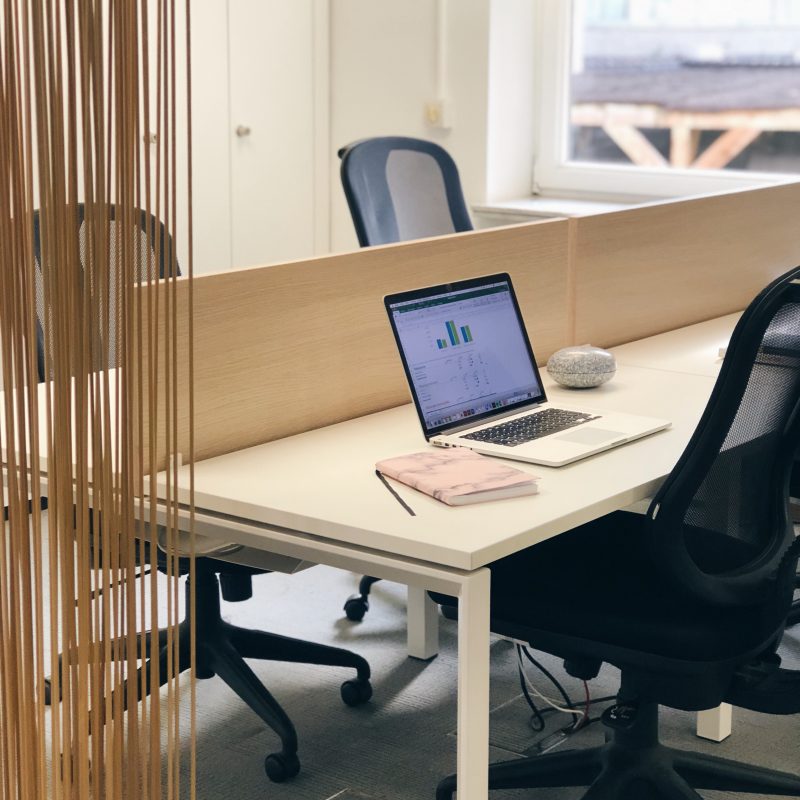The Top 11 Powerful Benefits of Renting a Co-Working Space for Remote Workers

Introduction

In recent years, remote work has become increasingly popular, and many workers are looking for flexible office solutions that allow them to work in a professional environment outside of their home. One popular option is renting a co-working space, which provides a shared office space for professionals who are not part of the same organization. In this article, we will discuss the benefits of renting a co-working space for remote workers.
-
Increased Productivity
Working from home can be challenging, as there are many distractions that can decrease productivity, such as family members, pets, and household chores. In contrast, co-working spaces are designed for work, with a professional environment that can increase focus and productivity. Co-working spaces typically have all the amenities needed for work, including desks, chairs, and office equipment. Additionally, the presence of other professionals working in the space can provide a sense of accountability and motivation, which can further increase productivity.
-
Networking Opportunities
One of the key benefits of co-working spaces is the networking opportunities they provide. When working remotely, it can be challenging to connect with other professionals in the same industry, but co-working spaces bring together professionals from different fields, creating opportunities for collaboration and networking. This can lead to new business partnerships, job opportunities, and mentorship, which can be beneficial for career growth.
-
Cost-Effective
Renting a co-working space can be a cost-effective solution for remote workers, especially for those who do not need a full-time office space. Co-working spaces typically offer flexible membership options, ranging from daily to monthly passes, which can be more cost-effective than renting a traditional office space. Additionally, co-working spaces provide all the amenities needed for work, including high-speed internet, office equipment, and utilities, which can save remote workers money on setting up their own office.

-
Flexibility
Co-working spaces provide flexibility for remote workers who need a professional office environment but do not want to commit to a long-term lease. Co-working spaces typically offer short-term rental options, ranging from a day to several months, allowing remote workers to choose the option that best suits their needs. This flexibility also extends to the workspace itself, with many co-working spaces offering a variety of seating options, including private offices, dedicated desks, and communal areas.
-
Access to Resources and Support
Co-working spaces often offer additional resources and support to remote workers, which can be beneficial for professional growth. Many co-working spaces provide access to workshops, seminars, and training sessions, which can help remote workers develop new skills and stay up-to-date with industry trends. Additionally, co-working spaces often have a community manager who can provide support and advice on professional development.
-
Work-Life Balance
Remote work can be isolating, but co-working spaces provide a social environment that can improve work-life balance. Co-working spaces often have a community feel, with regular events and opportunities for socializing with other professionals. This can create a sense of community and belonging, which can improve mental health and well-being.
-
Professional Image
Renting a co-working space can also help remote workers maintain a professional image. Meeting clients or colleagues in a professional environment can create a positive impression and help build trust. Additionally, co-working spaces often provide access to meeting rooms and other amenities, which can be useful for hosting meetings or presentations.
-
Enhanced Creativity
Co-working spaces can also provide a unique and creative environment for remote workers. Unlike traditional office spaces, co-working spaces often have an open layout and a diverse community of professionals from different fields, which can spark new ideas and collaboration. Remote workers can benefit from exposure to different perspectives, ideas, and approaches to work, which can enhance creativity and innovation.
-
Improved Work-Life Integration
Renting a co-working space can also improve work-life integration for remote workers. With a dedicated space outside of their home, remote workers can create a clear separation between work and personal life. This can improve focus and productivity during work hours, while also allowing for more relaxation and personal time outside of work. Additionally, co-working spaces often offer amenities such as fitness centers, cafes, and lounge areas, which can help remote workers integrate work and personal activities more seamlessly.

-
Access to Professional Development Opportunities
Co-working spaces often provide access to professional development opportunities that remote workers may not have access to on their own. This can include workshops, mentorship programs, and networking events. These opportunities can help remote workers develop new skills, expand their professional network, and stay up-to-date with industry trends. Additionally, co-working spaces may offer resources such as business coaching, legal advice, and accounting services, which can be beneficial for professional growth.
-
Increased Flexibility for Business Growth
Renting a co-working space can also provide flexibility for remote workers who are looking to grow their business. Co-working spaces can offer the infrastructure and resources needed to support business growth, including access to meeting rooms, event spaces, and administrative support. This can allow remote workers to scale their business more easily, without the commitment and expense of a traditional office space.
Conclusion
Renting a co-working space can provide remote workers with a range of benefits, including increased productivity, networking opportunities, cost-effectiveness, flexibility, access to resources and support, work-life balance, a professional image, enhanced creativity, improved work-life integration, access to professional development opportunities, and increased flexibility for business growth. With the growing popularity of remote work, co-working spaces have become an attractive option for professionals who need a flexible, professional environment outside of their home.



